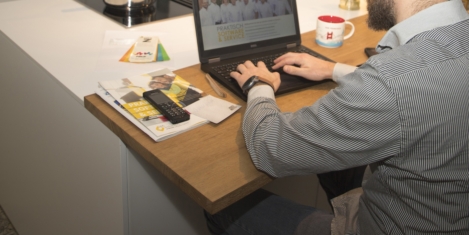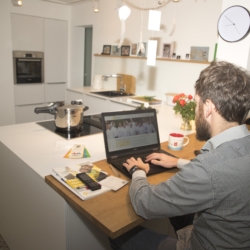To provide the best experiences, we use technologies like cookies to store and/or access device information. Consenting to these technologies will allow us to process data such as browsing behaviour or unique IDs on this site. Not consenting or withdrawing consent, may adversely affect certain features and functions.
The technical storage or access is strictly necessary for the legitimate purpose of enabling the use of a specific service explicitly requested by the subscriber or user, or for the sole purpose of carrying out the transmission of a communication over an electronic communications network.
The technical storage or access is necessary for the legitimate purpose of storing preferences that are not requested by the subscriber or user.
The technical storage or access that is used exclusively for statistical purposes.
The technical storage or access that is used exclusively for anonymous statistical purposes. Without a subpoena, voluntary compliance on the part of your Internet Service Provider, or additional records from a third party, information stored or retrieved for this purpose alone cannot usually be used to identify you.
The technical storage or access is required to create user profiles to send advertising, or to track the user on a website or across several websites for similar marketing purposes.
 New research by management consultancy Lane4, claims 44 percent of employees under 35 years old say that a lack of motivation has been hindering their performance at work since the start of the coronavirus outbreak in March.
New research by management consultancy Lane4, claims 44 percent of employees under 35 years old say that a lack of motivation has been hindering their performance at work since the start of the coronavirus outbreak in March.







 The
The 
 New research commissioned by
New research commissioned by 


 With current government advice encouraging all those who can work from home to do so, it’s no surprise that Britain’s businesses and employees are navigating a new normal. New research from
With current government advice encouraging all those who can work from home to do so, it’s no surprise that Britain’s businesses and employees are navigating a new normal. New research from 


 To mark the start of National Work Life Week, work-life balance charity
To mark the start of National Work Life Week, work-life balance charity 




 Businesses in the UK are disproportionately made up of logical and rational thinkers, over intuitive and expressive ones, claims a new study. The study from
Businesses in the UK are disproportionately made up of logical and rational thinkers, over intuitive and expressive ones, claims a new study. The study from 







October 14, 2020
Many people are demoralised, disconnected and worried. We need to talk about that.
by Steven Buck • Comment, Wellbeing, Working lives